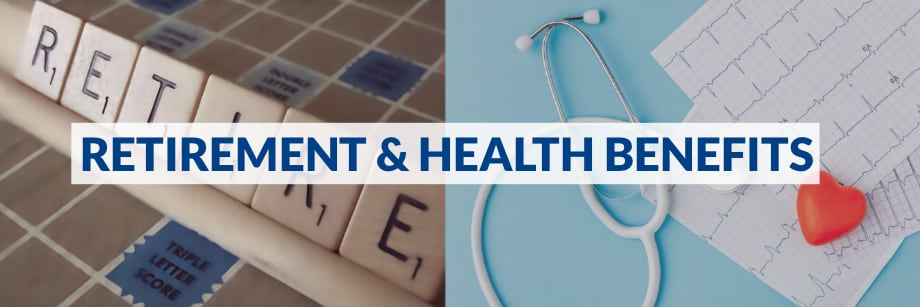Committees continued meeting primarily to move bills out of their respective committees while concurrently, the majority party in each house released their budget proposals as the week ended. The policy cut-off for bills was Friday, March 26th; the fiscal one will be the following Friday, April 2nd. Bills are stacking up for scheduling on floor calendars. Further activities will begin to focus on floor action, negotiations and compromises aiming toward an attempt to end on time on April 25th.

Committees continued meeting primarily to move bills out of their respective committees while concurrently, the majority party in each house released their budget proposals as the week ended. The policy cut-off for bills was Friday, March 26th; the fiscal one will be the following Friday, April 2nd. Bills are stacking up for scheduling on floor calendars. Further activities will begin to focus on floor action, negotiations and compromises aiming toward an attempt to end on time on April 25th.
Retirement Related Proposals
SB 5021 | Concerning the effect of expenditure reduction efforts on retirement benefits for public employees, including those participating in the shared work program. (Passed the House 65–32.)
SB 5352 | Allowing new government employees the option of opting out of retirement system membership if the employee is age sixty or older when first hired or when the employee’s employer opts into retirement plan participation. (A public hearing was held on 3/18 before House Appropriations and no further action has been scheduled. This bill is likely to die.)
SB 5367 | Directing the department of retirement systems to create rules regarding automatic refunds of retirement contributions in the retirement systems listed in RCW 41.50.030. (This bill has been moved for placement on the House Calendar.)
SB 5453 | Concerning plans 1 and 2 of the state retirement systems by combining LEROFF 1 and TRS Plan 1 assets to retire the unfunded liability of TRS 1. (This bill was introduced, and no hearings were held. It is likely dead but see below for comments.)
Comments: Fiscal leaders in both houses are aware of the unfunded liability of TRS and PERS 1 plans. Employers are currently paying a surcharge for their retirement contributions to help retire the debt of both plans. (TRS 1 liability is $2.8 B; PERS 1 $4 B) The question has been how to further address it. SB 5453 above, is one example of an attempt.
WSSRA (WA State School Retirees’ Assn.) has advocated spending General Fund (GF) dollars to pay down the liability. Any lowering of the liability will lower the surcharge that school districts (employers) are paying to address the problem. These GF dollars can be replaced with the one-time Federal infusion of cash. And surprise! The Senate budget released on Thursday, 3/25, budgeted $800 M toward lowering the TRS 1 unfunded liability. The House budget to be released late Friday afternoon is not expected to have dealt with this issue. It will be one of many budget differences to be negotiated between the two houses.
Opinion: This is great use of extra dollars to meet an obligation/debt without starting anything new. It is akin to using an inheritance to pay off one’s house.
School Employee Benefit Board (SEEB)
SB 5322 | Prohibiting dual enrollment between school employees’ benefits board and public employees’ benefits board programs. (This bill passed the House 98–0 and will be forwarded to the Governor.)
Other Bills:
There are a number of bills proposed that deal with expanding various employee benefits and qualifications. They address such areas as unemployment compensation, family and medical leave, and workmen’s compensation. They are worth monitoring because they may add personnel costs to school district operations. Caveat: A few bills, (see below) clearly have had problems clearing committees through scheduled Executive Sessions. They may well die.
Two bills (E2SHB 1073 and ESSB 5097) in the 2021 virtual legislative session are proposing changes.
E2SHB 1073 | Expands coverage of the paid family and medical leave program. (This bill is scheduled for a public hearing 3/30 before Senate Ways and Means.)
ESSSB 5097 | Expands coverage of the paid family and medical leave program. (This bill was moved to House Appropriations for a public hearing on 3/30.)
2SHB 1076 | Allowing whistleblowers to bring actions on behalf of the state for violations of workplace protections. (This bill is scheduled for a public hearing 3/30 before Senate Ways and Means.)
ESHB 1214 | Creates the category of safety and security staff for kindergarten through grade 12 public schools. (This bill has been moved for placement on the Senate Calendar.)
SHB 1323 | Concerning the long-term services and supports trust program. Among other provisions, it specifies that employees who apply to opt-out of the Long-Term Services and Supports Trust Program (LTSS Trust Program) must attest to having long-term care insurance prior to the effective date of this act. (Scheduled for Executive Action on 3/26 in Senate Health)
SHB 1363 | Addressing secondary trauma in the K–12 workforce. (This bill has been moved for placement on the Senate Calendar.)
SHB 1492 | Concerning extended benefits in the unemployment insurance system. (Assigned to Senate Labor on 2/26. Not yet scheduled and likely dead.)
ESSB 5115 | Establishing health emergency labor standards. Creates an occupational disease presumption for frontline employees during a public health emergency for the purposes of workers’ compensation, etc. (Executive action was taken on 3/24 before House Labor Committee.)
SSB 5425 | Concerning extended benefits in the unemployment insurance system. (Executive action was taken on 3/24 before the House Labor Committee.)
SSB 5254 | Concerning the use of protective devices and equipment during a public health emergency. (This bill has been scheduled for a public hearing in House Appropriations on 3/30.)
Fred Yancey
The Nexus Group LLC